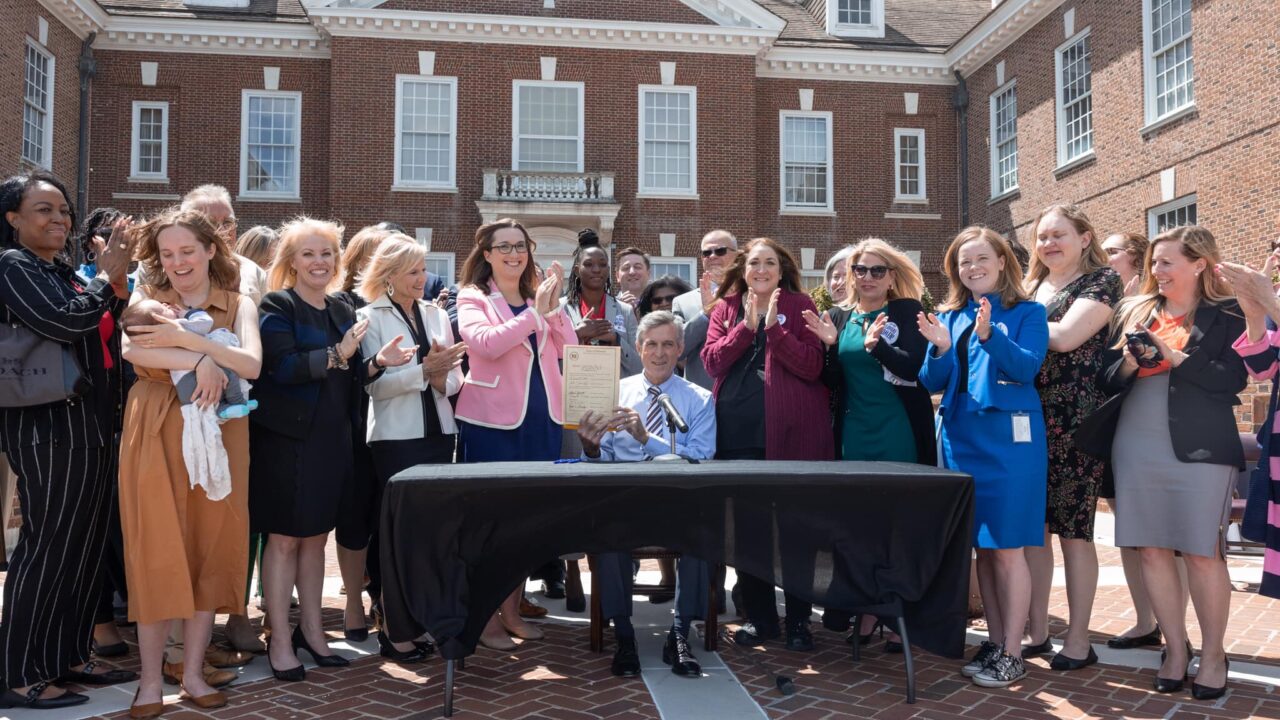This interview is part of a series of articles from The Forge and New America spotlighting successful stories of co-governance models across rural, urban, and tribal communities.
Collaborative governance—or “co-governance”—offers a model for shifting power to ordinary people and re-building their trust in government. Co-governance models break down the boundaries between people inside and outside government, allowing community residents and elected officials to work together to design policy and share decision-making power. Cities around the world are experimenting with new forms of co-governance, from New York City’s participatory budgeting process to Paris’s adoption of a permanent Citizen Assembly. More than a one-off transaction or call for public input, successful models of co-governance empower everyday people to participate in the political process in an ongoing way. Co-governance has the potential to revitalize civic engagement, create more responsive and equitable structures for governing, and build channels for Black, brown, rural, and tribal communities to impact policy-making.
Still, co-governance models are not without challenges. The hierarchical and ineffective nature of our current governing structure is difficult to transform. Effective collaboration between communities and politicians requires building lasting relationships that overcome deep distrust in government. So far, successful models of co-governance tend to be local and community-specific—making it critical that we share stories of success and brainstorm ways to scale.
New America’s Hollie Russon Gilman and Lizbeth Lucero sat down with Liz Richards, executive director of Delaware Cares, a coalition for paid leave, and a leading expert in passing state paid leave policies. In 2017, Liz managed the successful campaign to pass Maryland’s landmark paid sick days law, achieving veto-proof majorities in both chambers. She has since returned to her home state of Delaware, where she helped pass the Healthy Delaware Families Act in 2022. We talked about how she planted the seeds for the bill, formed a coalition from the ground up, and elevated people-power along the way.
Could you walk us through your strategy to pass the Healthy Delaware Families Act?
I knew we needed both inside and outside support for a large bill. The bill would involve major changes, people’s pocketbooks, and strong opposition from the political [world] and parts of the business community. While some bills are smaller, such that a legislator can almost single-handedly explain the issue to their caucuses, get the votes, and get it done quietly, this bill needed more than an inside strategy to pass.
When I returned to Delaware, my home state, I knew that a number of recently elected and existing legislators had been talking about paid family medical leave but had yet to introduce it. When we started organizing at the end of 2020 and the beginning of 2021, paid family leave was not considered a serious, immediate priority in either chamber. So I asked Senator McBride, who was, at that point, already the bill’s lead sponsor with Representative Debra Heffernan, “Are there any organized groups pushing this bill forward?” Frankly, this didn’t exist yet.
I talked with different organizations, starting with ones that were interested in economic justice. We branched out from Delaware United and Network Delaware, two progressive groups that had a lot of grassroots energy and knew a network of other organizations. I reached out to every organization that might be aligned with us on this issue and said, “If enough of us band together, we can put this on the agenda in a big way. It won’t be something that lawmakers only like in concept, but an issue they will take seriously.”
Once core advocacy groups were on board, we reached out to faith organizations. We reached out to labor, the Delaware Nurses Association, National Coalition of 100 Black Women, and Black Mothers in Power. To that end, organizing for the bill was no longer framed as, “If you want this to happen, then you have to make it happen.” Now, the pitch was, “If you care about this, we’re going to push with you to move it ahead.”
By February 2021, we had a coalition of twenty-five groups and good media exposure. After the next several months, we grew to fifty groups, continuing to engage proactively and talk about the issue. Eventually, groups began to approach us, like the Alzheimer’s Association and Prevent Child Abuse Delaware, and then heavy hitters, like the American Association of Retired Persons, got engaged. Our coalition-building efforts had a massive snowball effect.
At the same time, we didn’t have the resources, beyond forming a coalition, to do large-scale outreach, like making phone calls to grassroots voters. So when anyone who cared about the issue contacted us, regardless of whether they were affiliated with an organization, we brought them into the fold. Some wrote blog posts, and many others just wanted to tell their story, which we adapted for social media.
Ernesta Coursey is a great example, and her story was featured in the press. She was a hairstylist for many years and had to save tips for nine months just to take a couple of unpaid weeks off when she had kids. When I met Ernesta, she was studying public policy and getting her Bachelor’s degree. She frequently used us as a platform to make incredible speeches, becoming an advocate and now a major community leader. She wants to continue advocating on other issues that matter to her. So the opportunity for people to share their stories and use their voices to effect change has been critical to our campaign.
What does external and internal power mean to you in your work on paid family leave?
Before paid leave was on the agenda in Delaware in a real way, several organizers, including political outsiders, ran for office and won in 2020. Prior to 2020, many people on the “inside” making policy decisions talked very little about how paid leave was personal to them and their constituents. Since then, the bill’s lead sponsors and other legislators have openly shared their personal connections to the importance of passing this bill. They essentially became the lead inside advocates, which was critical because there was no money on the coalition side to have a hired lobbyist. Our job from the outside, then, became to build excitement, apply pressure, and leverage our power. As a small state, we had an advantage in that we had less ground to cover in the legislature than a larger state would, but we also had fewer resources.
How were you able to find community leaders like Ernesta who are willing to speak publicly about their personal experiences?
Once we had a coalition of twenty-five organizations, which was significant enough for the press to latch onto, we did a launch event and an op-ed that was published in the Delaware News Journal. I reached out to Councilwoman Shané Darby, founder of Black Mothers in Power, who was really well-connected to mothers with personal experience regarding the lack of paid leave. Shané introduced me to several women with whom I had conversations that usually lasted around 45 minutes. I took notes on the key details of the stories of these women, then wrote up paragraph-length summaries to send back to them to see if they accurately reflected their experiences. With their approval, I put the stories on social media. We tried to make it as easy as possible for people to tell their stories and participate because that’s often a barrier for people. Sometimes, it’s easier for people to explain what happened and have someone else write it down. Working parents are powerful advocates, but they are also incredibly busy!
Were there any national conversations that helped elevate your strategy for getting this bill passed?
We had a goal to get this bill passed during the small window of time before redistricting changed the makeup of the Delaware legislature. We had a supermajority in both chambers, which was needed to pass paid leave because of its taxation implications. Even though we didn’t succeed in 2021, we used that summer to advocate for the federal Build Back Better bill while our legislature was out of session, especially since we were the home state of President Joe Biden. We sent handwritten letters, with all of our signatories, to our congressional delegation and to the President. And Build Back Better ended up elevating paid leave to another level. I remember a specific New York Times graphic that fueled a national conversation on social media on how the US is one of six countries that doesn’t have paid leave. There was a TikTok about a woman from Pennsylvania who was crying because she had a baby in the NICU and needed to be at work to save her paid leave for when her baby got out of the NICU. The paid leave portion of Build Back Better was not enacted into law, but after the national exposure we received, we went back into the legislative session with an intense fire in the belly to pass paid leave in the First State.
What are the key lessons that people can take away from your paid family leave advocacy efforts?
Stories are very important. Connecting on a personal level helps illuminate the policy issue. That’s just generally good advocacy.
Another thing is that you have to meet people where they are in terms of their life experiences, but also meet the legislators where they are and consider their concerns. During the first part of our campaign, which was during a deadly period of the pandemic, we framed the paid leave campaign as a solution to some of the major issues we were seeing during the pandemic. It helped working parents, particularly women who bore the brunt of pandemic job losses, balance work, and family – and enabled them to stay in the workforce.
Once the national labor shortage began to eclipse the pandemic in political consciousness, we spent a lot of time focusing on paid leave as an employee retention strategy — that people will stay in their jobs if they are able to take time off and come back instead of quitting. As inflation really started to take off and the labor market became strained, the biggest pushback against paid leave was that absences couldn’t be permitted. Having people out of work was not an attractive option, and we stressed that paid leave was part of the solution.
So we were really serious about that message discipline. We talked with both legislators and the public about the issues they cared most about. We targeted messaging to the State House around the economics of paid leave and why it makes smart business sense, while still approaching the public about the need for people to take care of their families and keep their jobs. And the polling we did at the very end showed that the message — that people shouldn’t have to choose between their jobs and families — resonated across parties, with Democrats, Republicans, and independents.
Now that the Healthy Delaware Families Act has been passed, what are some of the next steps? Are you thinking of applying what you’ve done to other states?
What we did can absolutely apply across states. I was operating from an existing playbook of lessons that I learned in Maryland and applied them here in Delaware. In terms of what’s next for Delaware and Delaware Cares, we sent a survey to our members asking that exact question. There are a few options. We could focus on new issues like childcare or workplace justice. Or we could focus on implementation and education about paid family medical leave and stay on that issue. We’re going to be thinking about this and other major issues impacting everyday people for the next several months.
We would like to thank Lindsay Zafir, Mark Schmitt, Maresa Strano, Jessica Tang, and Grace Levin for their incredibly helpful comments and editing support. This would not have been possible without them.


